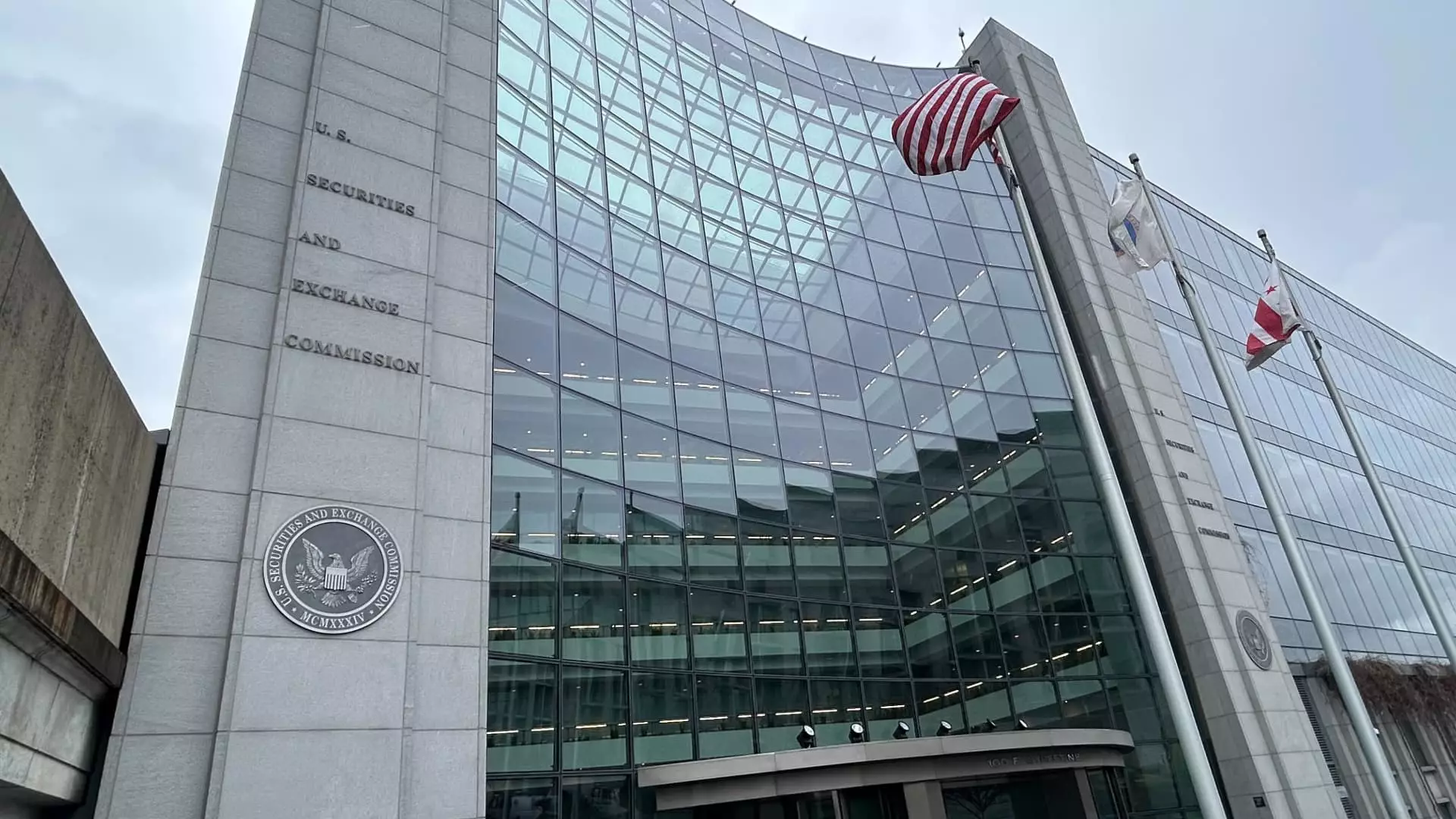The U.S. Securities and Exchange Commission (SEC), the pivotal watchman of financial integrity, is in a state of turmoil as more than 600 employees, including senior enforcement staff and legal counsel, are preparing to exit the agency. This significant staff exodus is not merely a statistic; it signals profound implications for the SEC’s ability to safeguard investors and uphold market regulations at a time when such oversight is essential. With pressures exerted by the Trump administration and the influential tech titan Elon Musk, one must critically evaluate how this reshaping of the federal workforce bodes for the democratic ideals of accountability and transparency.
The SEC has long been the bedrock of investor protection and market stability. However, with Trump’s agenda to trim what he deems a “bloated” government, we observe a radical reimagining of a regulatory body that should ideally function independently of the caprices of political personnel. The voluntary departure program, ushered in under SEC Acting Chairman Mark Uyeda, raises eyebrows not only for its timing but also for its potential fallout—an agency significantly diminished in staff is an agency that could falter in its immense responsibilities.
The Impact of Political Agitation
The approaching deadline for resignation submissions suggests a wave of instability. Departments such as the Division of Enforcement and Office of General Counsel face unprecedented attrition rates, leading one to wonder: how can a diluted workforce maintain rigorous enforcement against corporate malfeasance? The mass exit reflects an atmosphere of fear and uncertainty, prompting talented individuals to opt out of an increasingly fraught environment influenced by partisan agendas. If we lose the best minds to an exodus out of fear of political whims, then can we still claim to operate under a democratic regime?
While some departures might be voluntary in the sense that they stem from personal choice, it’s naive to overlook the psychological strain that political machinations impose on staff morale. Those remaining could find themselves overextended, burdened with the dual tasks of filling gaps left by those who have departed and continuing their regulatory duties amid swirling controversies. The irony is not lost that the very leadership aiming to reduce inefficiency risks creating a bottleneck that could hinder timely actions against those who flout regulations.
A Bleak Future for Investor Trust?
Under these circumstances, the question arises: How will individual and institutional investors react to this apparent destabilization of oversight? The SEC’s efficacy is contingent upon the trust placed in it by the markets it serves. If stakeholders perceive that the agency is compromised by a lack of resources and staff, we may witness increased reluctance to engage with financial markets, which could have dire economic consequences.
The pervasive influence of technology magnates like Elon Musk complicates this scenario further. When the tone of the federal regulatory environment leans towards acquiescence to powerful figures, the risk of investor exploitation increases alarmingly. In a capitalist society that thrives on the principle of fairness, the impression that certain large entities can escape scrutiny is detrimental to the very fabric of our economic ecosystem.
In this confluence of politics and regulatory firestorm, we must scrutinize how power dynamics can threaten the foundational attributes of society. The SEC’s aging identity, shaped by years of advocacy for fair practices, is now being reshaped under the weight of political expediency. As the dust settles and the resignations culminate, the real challenge will be to recover the trust and ethos that the SEC was built upon, before it teeters into irrelevance.


Leave a Reply